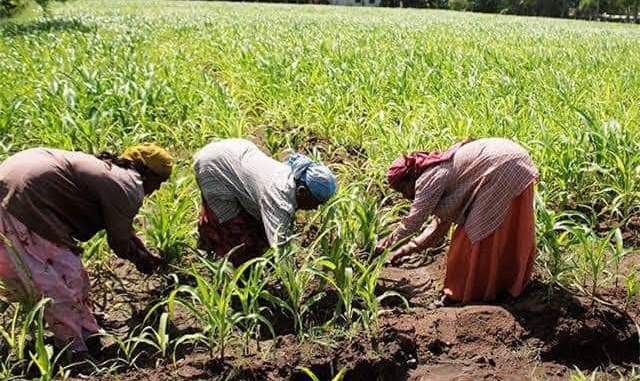Tap into agriculture to lift Nigeria out of poverty, FG advised
- February 13, 2022
- 0
Stakeholders in the Nigerian agriculture sector have called on the federal and the state governments to use the sector as an instrument to lift the country out of
Stakeholders in the Nigerian agriculture sector have called on the federal and the state governments to use the sector as an instrument to lift the country out of

Stakeholders in the Nigerian agriculture sector have called on the federal and the state governments to use the sector as an instrument to lift the country out of poverty and delete its name from the global list as the poverty capital of the world. The call from the Non-State Actors (NSA), comes ahead of the launch of the third series of the Biennial Review (BR3) report of the African Union Comprehensive Africa Agriculture Development Programme (CAADP).
According to them, the agricultural industry is the only sector that can adequately provide the needed jobs for the country’s growing population.
The stakeholders spoke at a two-day Pre-BR3 launch event, tagged: ‘Strengthening Accountability and Utilisation Biennial Preview Results – Countdown to BR3 Launch’, in Abuja. The NSA called on the federal and state governments to ensure the timely and total release of the agriculture budgets to ensure food security, unemployment reduction and poverty eradication. Remarking, Food and Agriculture Programme Coordinator, ActionAid Nigeria, Azubike Nwokoye, called on the Federal Ministry of Agriculture and Rural Development (FMARD) and State Ministries of Agriculture to create a yearly budget line for the support of smallholder women.
He stressed the need for the three tiers of government to commit 10 per cent of their annual budget to the agriculture sector to meet the 10 per cent Maputo/Malabo Declaration required to achieve at least a six per cent growth rate for the sector as proposed in the CAADP framework. Nwokoye maintained that to address the strategic areas of investments that would increase the agricultural Gross Domestic Product (GDP) of the states and country to at least six per cent, the state governments must allocate more public investments into agriculture.
“For agriculture budgeting and other policymaking processes, a strategy for involving and mainstreaming the concerns of smallholder farmers should be developed. For example, leaders of women farmer organizations and other smallholder farmers, vulnerable groups such as farmers living with disabilities, and CSOs should be invited to every stage of the budget. “States should develop their own Agricultural Investment Plans. This will enable the efforts at the states and local government levels to be recognised in the overall determination of the country’s commitment to the CAADP and enable accurate data for the Biennial Review (BR) Reporting,” he said.
Giving an overview of the Malabo Declaration Biennial Review (BR) Report, the International Project Manager, Public Finance for Agriculture (PFA), ActionAid International, Constance Okeke, said one of the aims of the meeting was to enable NSA, civil society organisations, farmers, and the media to share results and experiences, to achieve the African Union’s agricultural target for 2025.
She said Nigeria was working towards achieving results and has made huge progress from the first BR to the second BR. “We are also hoping that the third BR will be better. We want more investments in agriculture, better policies, participatory processes, joint stakeholders review of programmes and policies so that we can be on the same page and everybody can move at the same pace,” she said.